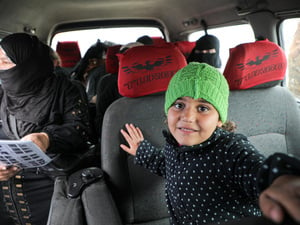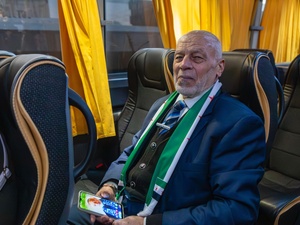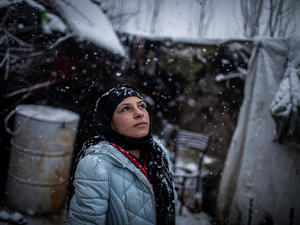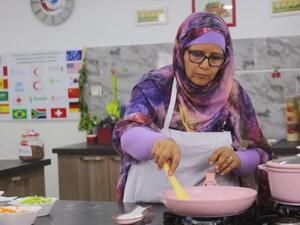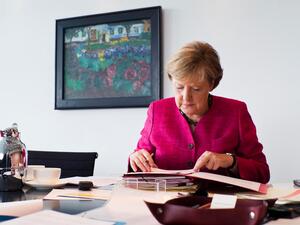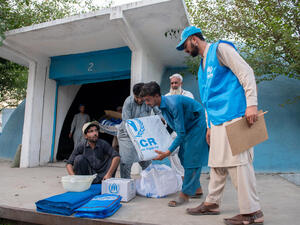Aid convoy offers brief respite for Syrians at Jordan border
Aid convoy offers brief respite for Syrians at Jordan border
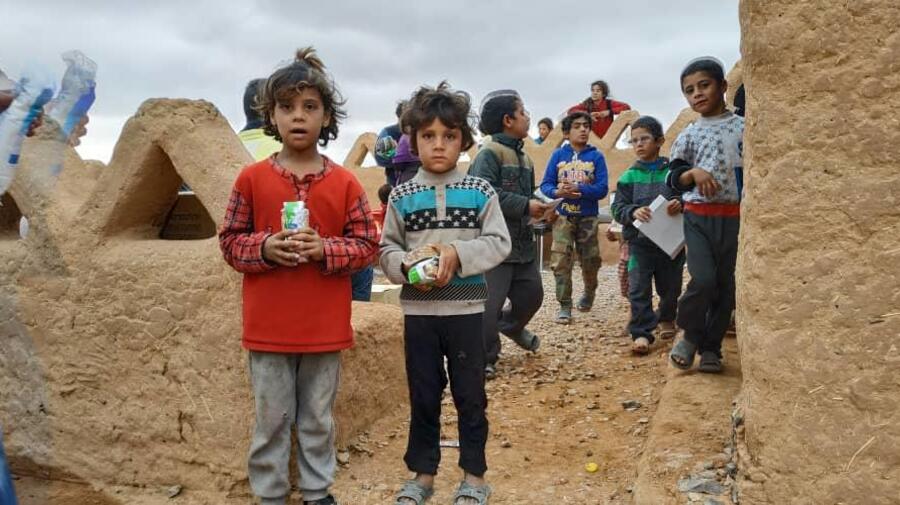
Displaced children from Rukban camp receive high-energy biscuits and nutritious meals delivered through a United Nation and Syrian Arab Red Crescent (SARC) Inter-Agency aid operation to Rukban camp.
RUKBAN INFORMAL SETTLEMENT, Jordan-Syria Border – Having spent the last three years trying to care for his wife and four children in a mud-brick shelter in the middle of a vast, featureless wasteland on the Syrian-Jordanian border, Abu Ahmad is running out of hope.
The former tour guide from Palmyra is among some 50,000 Syrian men, women and children who have found themselves stranded in the informal desert settlement known as Rukban since 2015, having fled fighting in other parts of their war-torn homeland.
Unable to cross into neighbouring Jordan and too afraid to return to their homes, their only option has been to remain where they are. Devoid of any infrastructure and several hours drive from the nearest town or paved street, just finding sufficient water, food and shelter to survive is a daily struggle.
“Each passing day we are sinking under the weight of our poverty, unable to meet our most basic needs as human beings,” Abu Ahmed said. “Please save us, and help us regain our lives.”
With humanitarian access severely restricted due to security concerns and other issues, and with no electricity, health facilities or formal education in the settlement, people living there described feeling like they had been abandoned to their fate.
Living conditions are precarious, with the site’s remote location and recent tightening of smuggling routes from inside Syria causing severe shortages of basic commodities including food. A reported increase in violent incidents has added to the protection concerns facing those living there.
"People here feel they are stuck."
On Sunday, a UN inter-agency and Syrian Arab Red Crescent convoy delivered food, health and sanitation supplies, and other emergency items including 10,000 plastic sheets to protect people against the coming winter weather. It was the first such aid delivery from inside Syria since the settlement was established.
Previously, the UN has only been permitted to deliver aid sporadically from the Jordanian side of the border, with the last such distribution completed back in January.
UN agencies have also constructed a dedicated primary health facility just over the Jordanian border close to Rukban, but access remains an issue and the clinic is unable to provide advanced medical services to the many residents suffering from chronic illnesses and other serious conditions.
After meeting with community leaders and youth groups, UNHCR Deputy Representative to Syria Ajmal Khybari said a lasting solution to the plight of the people in Rukban must be found.
“To say that the situation here is desperate is an understatement,” Khybari said. “People here feel they are stuck, and are praying that humanity prevails.”
UNHCR – the UN Refugee Agency – is calling on the international community and parties to the conflict to find an agreement to end the suffering of vulnerable civilians trapped there. All those displaced must be allowed to voluntarily return to their homes or a place of their choosing in safety and dignity. As long as these solutions remain elusive, UNHCR stresses that the provision of aid cannot be a one-time event and that unfettered access must be guaranteed.
"They do not deserve this life."
Women and children make up the majority of those living in Rukban, many of whom are particularly vulnerable. With no formal education at the camp and only limited access to basic literacy classes, parents described their frustration at seeing their children’s futures waste away in the desert.
Many displaced Syrians struggling to survive in this makeshift site are concerned that they had not been able to document major events taking place in their lives over the last years, including marriages, divorces, the birth of their children. This increases the risk of statelessness of the already vulnerable children in Rukban.
Young mother Um Majid was preparing to go to university when armed groups took control of her town in 2015, forcing her to flee to Rukban with other members of her family. Now married with two young children, she fears they will grow up without an education unless their situation changes.
“All I want is for my children to go to school and have the bright future they deserve,” she said. “They do not deserve this life.”


